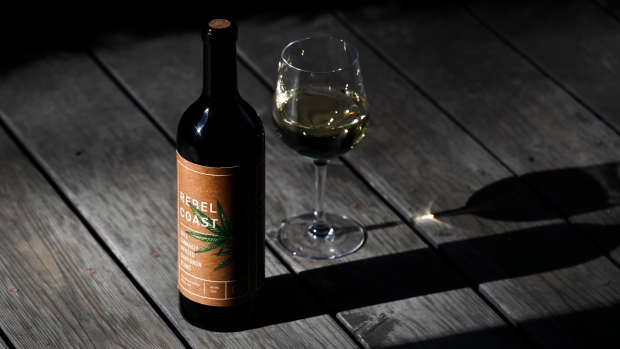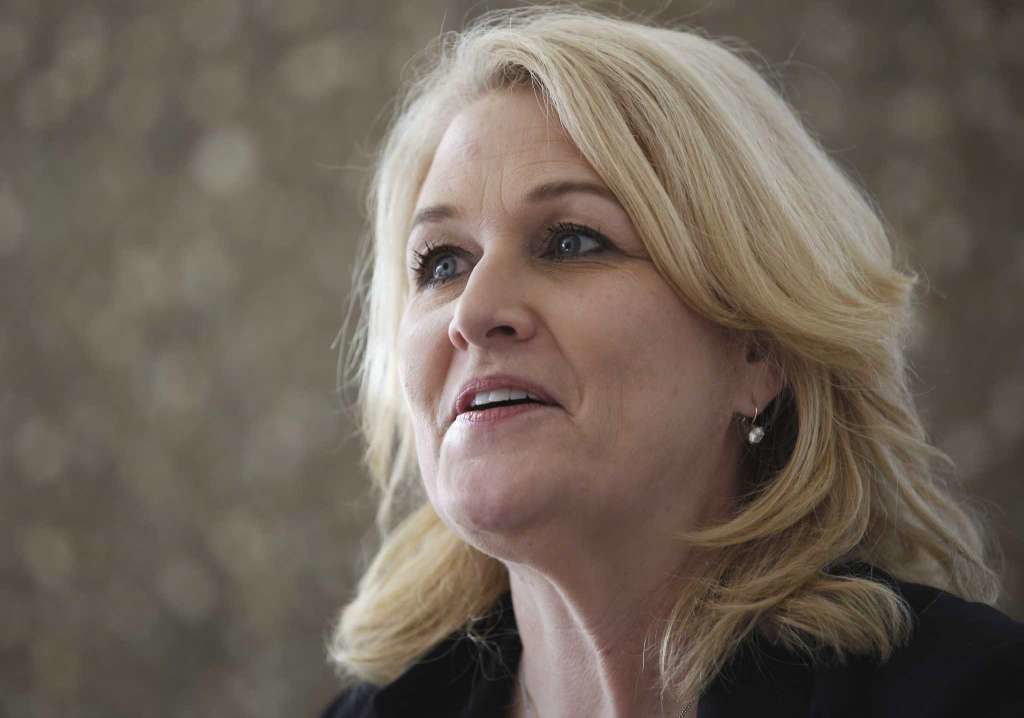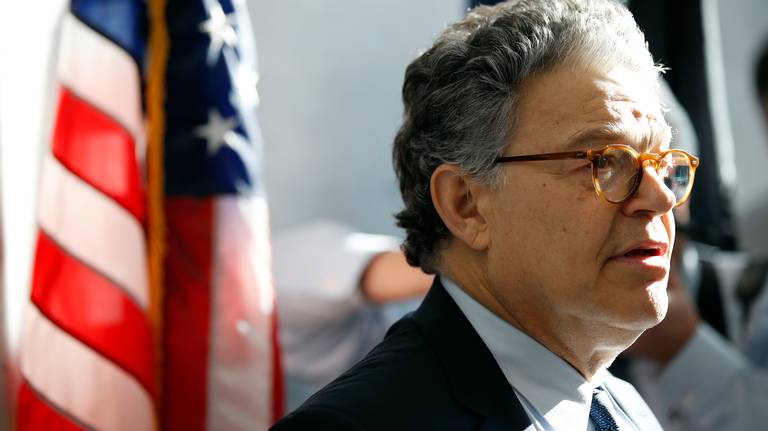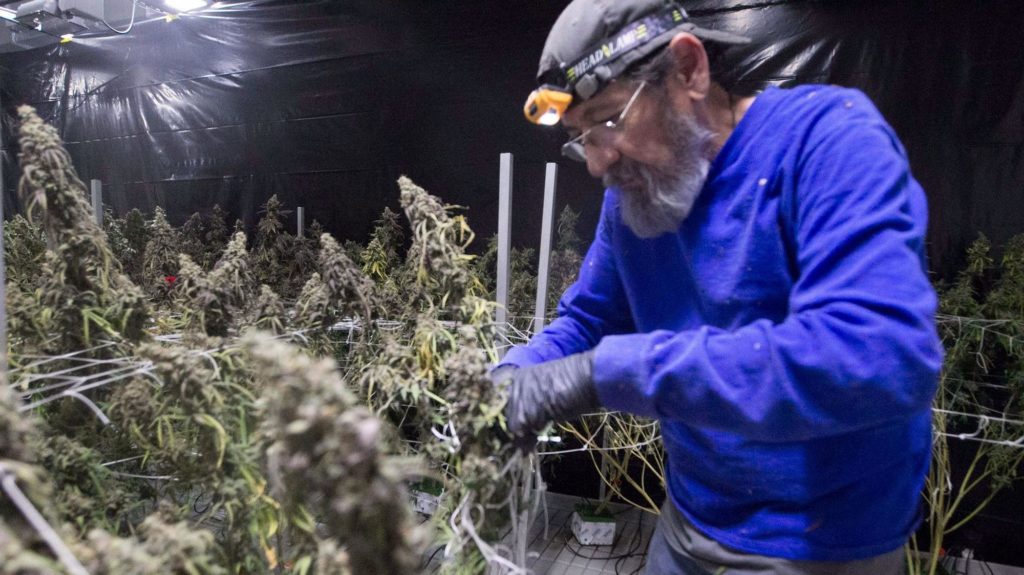Joshua James Frey is clear: “Without medical marijuana I would be dead.”
This Marine Corps veteran is a two-time Purple Heart awardee. He is among the former warfighters, led by the American Legion, who are on the frontlines of the fight for a sensible, federal medical marijuana policy.
They are pushing a reluctant Uncle Sam to catch up with overwhelming public opinion that favors allowing cannabis for medical use. We covered the Legion’s Capitol Hill press conferenceon Thursday with Frey, other veterans and a bipartisan group from Congress. Veterans, among the most respected citizens, are a potent force in the effort to move the federal government from a backward, anti-marijuana stance that resembles the 1936 melodramatic film propaganda of “Reefer Madness” more than today’s reality of widespread medical cannabis use.
Now, we hear the stories of two veterans who use medical marijuana and one who didn’t, but whose mother believes would be alive if he did. In powerful, emotional statements at the news conference, they all complained about the dangers of the drug cocktails prescribed by doctors who are prohibited from even discussing the marijuana that has proven far more beneficial for the two vets. Their stories differ starkly from a presidential commission on drug addiction report this month that said “there is a lack of sophisticated outcome data on dose, potency, and abuse potential for marijuana.”
Let’s start with Frey, a Melbourne, Fla., combat veteran of the Third Battalion, First Marine Regiment. “Medical marijuana saved me,” he told the Federal Insider. “I feel like I did before the war (in Iraq) mentally and … know this could help not just the veterans struggling, but it could help anyone struggling with addiction and PTSD (post traumatic stress disorder). It’s time we all stand as one voice and truly move forward with real hard-lined research and move forward with real compassionate care.”
Frey was wounded twice in 2004, once in November by a rocket-propelled grenade. Less than a month later, shortly before Christmas, he was shot in the right shoulder, shattering it and detaching his right bicep. He spent two years at the Naval Medical Center San Diego, also known as Balboa Hospital, had six blood transfusions and 22 operations.
“I’ve been real quiet about my medical marijuana use,” he said at the news conference. “If it wasn’t for medical marijuana, I wouldn’t be here today. I wouldn’t have kids today. I wouldn’t have a beautiful wife I’ve been married to for 13 years now.”
He resents the Department of Veterans Affairs (VA) saying “you are doing something bad.” “We need to stop the madness. We need to get this stuff on the books. … It could help a lot of vets.”
Boone Cutler is an Army veteran who spent two years in Walter Reed Army Medical Center recovering from combat injuries suffered in Baghdad. Host of the Tipping Point show on KNEWS, 107.3 FM in Reno, Nev., he has been diagnosed with early-onset Parkinson’s disease, related to his wartime blast injury. He authored the Spartan Pledge, the veterans’ commitment against suicide, and is a national spokesman for the Warfighter Rights Movement on PTSD issues.
During his two years at Walter Reed, “I was given just about every chemical cocktail you can imagine. When people look at that cocktail they want to know two things. One, why am I still alive and two, why isn’t somebody in prison, because it was that dangerous.”
At a low point, he “grabbed my gun and put it to my head,” blaming the prescription drugs for losing “my self-preservation instinct.”
He turned to marijuana to help him sleep.
“My story is not one of Cheech and Chong,” he said, sunglasses perched just above his eyes. “It wasn’t a good time when I started using cannabis. It was simply a way to survive.”
When he tried marijuana he slept for five hours. “At that time,” he said, “I hadn’t slept for five hours in five years.”
Janos “Johnny” Lutz isn’t here to tell his story, so his mother did. She told a sad tale of depression and prescription drug complicit suicide. He saw combat in Iraq and Afghanistan, where 14 of his colleagues died during Operation Khanjar in Helmand Province in 2009.
“It is our hope that the story of my son, who was lost because of prescribed pharmaceuticals will open your hearts and minds to research,” Janine Lutz said before an emotional pause, “to research cannabis, the most safe and effective treatment for our veterans today.” She started the LCpl Janos V Lutz Live to Tell Foundation in Davie, Fla., in support of military and first responders.
credit:washingtonpost.com













